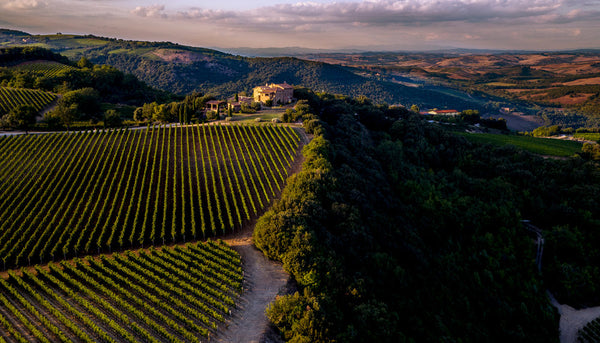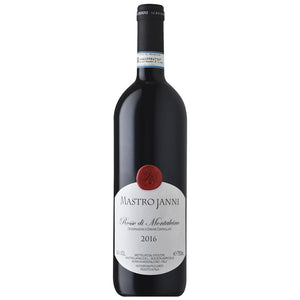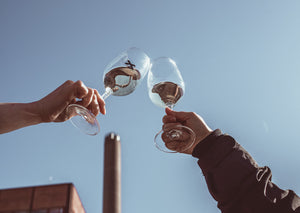
Mastrojanni
Mastrojanni's history stretches back to 1975, Gabriele Mastrojanni, a Roman lawyer, bought the San Pio and Loreto estates and decided to plant his first vineyards. The variety chosen was Sangiovese Grosso, whose planting density of 5,700 vines per hectare enables sufficient competition between the vines and working in the vineyards with tractors. In 1992, Andrea Machetti took over the operation of the farm and worked tirelessly to make it one of the best farms in Montalcino. He spent countless hours in the vineyards and knows his vines inside out. Around the same time, Maurizio Castelli, who acquired his winemaking skills elsewhere, started as a winemaker on the farm - although he saw his role as a doctor rather than a winemaker: Maurizio tries to prevent problems that might occur in the cellar. Otherwise, winemaking is characterized by non-interventionist thinking. In 2008, the farm's ownership changed to Francesco Illy, but the old team led by Machetti and Castelli is still responsible for the production of the farm's wines.
The poor soil of the 39-hectare vineyards consists mainly of clay, volcanic ash, rocks shaped by an ancient river, and sandstone. The vines, which are about 40 years old, are forced to root deep into the ground in search of nutrients, which is why they produce concentrated grapes on slopes facing south-east, south and south-west. The central Italian climate is dry in the summer during the growing season of the vines, so the rainwater stored in the soil during the winter is needed. Summer temperatures often rise to 33-40°C during the day, and the Mistral and Libeccio winds already evaporate the water available to the vines. However, the winds help in the control of insects and plant diseases, and cool down especially at night, when temperatures often drop to 17-21°C, creating a temperature difference of about 15°C between day and night. Because of this, the skins of the grapes store much more color-forming anthocyanins, healthy resveratrol and tannins responsible for the mouthfeel. Not only are these antioxidants good for people's health, they also prevent the wine from oxidizing, which guarantees the farm's wines a long bottle aging potential.
On the cellar side, Mastrojanni uses both glazed and unglazed large concrete tanks. With their help, the fermentation temperatures can be kept low and even, which allows optimal color, tannins and structure to be extracted from the skins of the grapes. The concrete tanks enable micro-oxidation of the wines during fermentation, with which the acidity and tannicity of the wines reach a balance. Since 2008, all grapes have been selected on a sorting table, where 6-8 people selected them one by one. This way, only the healthiest and most fully ripe Sangiovese grapes end up in the final wines.
The farm's annual production is around 160,000 bottles.
https://www.mastrojanni.com/en/home/home


